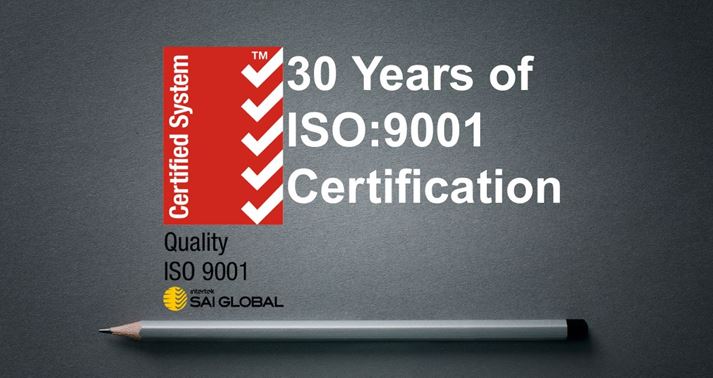Why Soft Skills Matter More Than Ever in the Age of AI and Automation
03 March, 2025

In an increasingly automated world, the professional edge belongs not to those who can simply do the job, but to those who can connect, lead and adapt while doing it. While artificial intelligence continues to redefine industries and streamline tasks, it cannot replicate the irreplaceable qualities that make us human.
For professionals seeking career growth in Australia, developing strong soft skills is not only vital to staying relevant - it’s what sets you apart. At McArthur, we’ve seen firsthand how employers are prioritising these human traits, especially in people-focused sectors such as Aged Care, Early Childhood Education, Social Work, Government and Community Services.
In this article, we explore three core soft skills - Communication, Empathy, and Adaptability - and why they remain indispensable in the AI age.
Communication: The Human Touch in a Digital World
AI can process and deliver information. It can even simulate conversations. But it cannot replicate the depth, nuance, and emotional intelligence that come with authentic human communication.
Great communicators don’t just speak - they listen, interpret non-verbal cues, and tailor their message to different audiences and situations. This is especially important in roles that require negotiation, conflict resolution, customer service, team leadership or community engagement.
In sectors like Early Childhood Education or Aged Care, being able to explain complex information with clarity and warmth isn’t a “nice to have” - it’s essential. A chatbot may provide scripted answers, but it cannot read a parent’s concern in their tone or pick up on a child’s confusion through body language.
To strengthen your communication skills, focus on becoming a more active and intentional listener - this means giving people your full attention and responding with empathy and understanding. Invite feedback on how you engage in conversations and presentations, and use it to refine your style. Regularly seek out opportunities to speak or present in team meetings, workshops or volunteer groups. The more you communicate across diverse settings, the more confident and effective you’ll become.
Empathy: Understanding That Algorithms Can't Feel
Empathy - the ability to understand and share another person’s feelings is the heart of human connection. No matter how advanced AI becomes, it will never be able to truly feel. It lacks the lived experience, moral context, and emotional depth that humans bring to every interaction.
In professions involving care, social impact or leadership, empathy is what drives genuine service. Whether you're a case worker helping someone through trauma or a nurse supporting people with disability, your ability to sense what someone needs - often without them saying it - is a superpower AI cannot possess.
Building empathy starts with self-awareness and a willingness to understand others. Reflect on your own emotional reactions and try to place yourself in others' shoes during conversations. Connect with people from different backgrounds and listen deeply to their stories and perspectives. Sharing in real-world experiences, especially through volunteering or community work, can also expand your emotional understanding and sensitivity - qualities that employers value highly.
Adaptability: Thriving Through Change
If there’s one skill that every professional needs in today’s ever-changing job market, it’s adaptability. While AI can be programmed to respond to specific inputs, it struggles with unstructured, unpredictable environments - something that humans navigate daily.
Being adaptable means more than coping with change - it’s about embracing it, finding new ways to contribute, and staying calm in the face of ambiguity. Whether you’re shifting to a new role, adopting new technologies, or dealing with policy changes, adaptability ensures you don’t just survive - you thrive.
To become more adaptable, challenge yourself to take on new tasks or projects that stretch your capabilities. Say yes to learning opportunities, even if they push you outside your comfort zone. Being open to different ways of working, thinking, and problem-solving will help you build resilience and confidence. Adopting a growth mindset - viewing every change as a learning opportunity - will empower you to stay agile and future-ready.
Other Critical Soft Skills for Today’s Workforce
In addition to communication, empathy and adaptability, several other soft skills are rising in importance across Australia’s job market. Resilience - your ability to bounce back from setbacks, manage stress, and maintain focus through challenges - is a vital trait that AI simply cannot replicate. In complex work environments, critical thinking is equally essential; it allows professionals to analyse information, weigh options and make sound decisions that require both logic and judgement, far beyond what data-driven algorithms can offer. And as ethical considerations grow in every industry, ethics and integrity are increasingly seen as must-have attributes. Whether navigating client confidentiality, community engagement, or commercial decision-making, ethical conduct builds trust and accountability - something machines can’t authentically demonstrate. Together, these human traits form the backbone of professional success in a technology-driven world.
Why McArthur is Your Partner in Career Growth
At McArthur, we understand that recruitment is more than a resume match - it’s about aligning your values, strengths and aspirations with the right opportunity. We recognise the importance of soft skills and the human element in every role we recruit for.
- Our specialist consultants work in the sectors they recruit for, so we understand exactly how soft skills play out in real-world settings.
- We help you identify and articulate your unique strengths, especially your soft skills, during the job search process.
- Our recruitment specialists provide personalised guidance to help you highlight and position your soft skills effectively, connecting you with roles where your human strengths are truly valued.
Your Greatest Asset is Still You
As technology continues to reshape the workplace, your most valuable assets will always be the ones that machines cannot replicate - your ability to communicate with empathy, lead with heart, and adapt with purpose.
If you’re ready to take the next step in your career, McArthur is here to support you - human to human. Explore current roles, connect with our expert team, and discover how we can help shape your next chapter.
Share this Article
Related Articles
Why Adaptability Skills Matter Now More Than Ever to Future Proof Your Career in Australia
Adaptability is now a must-have skill for career success in Australia. Learn why it matters, how to strengthen it, and how McArthur’s recruitment consultants can help you stay competitive in today’s evolving job market.
Learn MoreMcArthur Celebrates 30 Years of ISO 9001 Certification
In June 2025, McArthur proudly marks 30 years of ISO 9001 certification, a milestone that reflects our commitment to quality, consistency, and continuous improvement in recruitment and HR services across Australia. Three decades strong, and still evolving.
Learn MoreWhy Soft Skills Matter More Than Ever in the Age of AI and Automation
As AI transforms the workplace, soft skills remain your most powerful career asset. Discover why communication, empathy and adaptability still matter in every industry - and how McArthur’s recruitment experts can help you grow, stand out, and stay future-ready.
Learn MoreHow to Structure Winning Responses in Behavioural Interviews with the Right Technique
Behavioural interviews are key to landing your next role, and how you answer makes all the difference. Explore the STAR, SHER and SHARE techniques to structure strong, confident responses and discover which method best highlights your professional strengths.
Learn More



